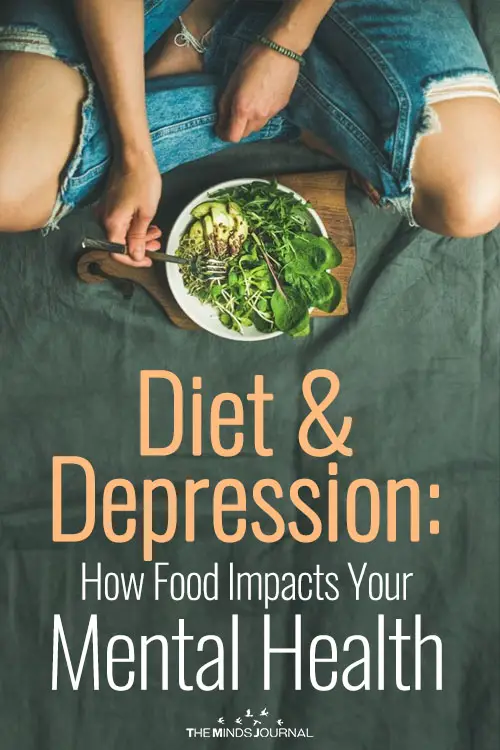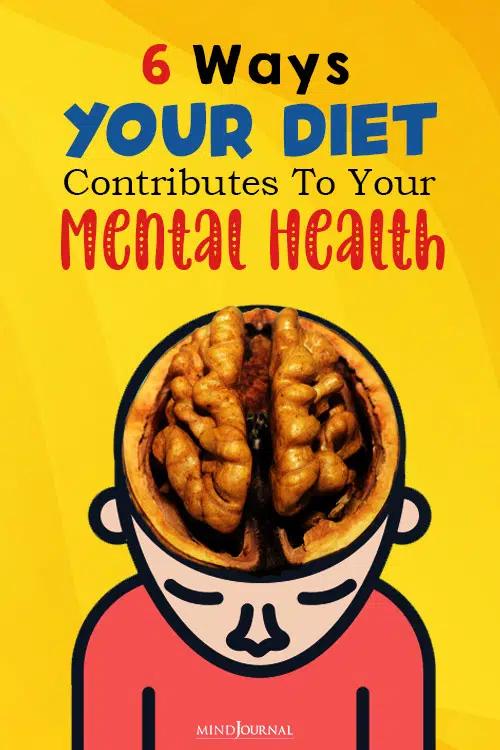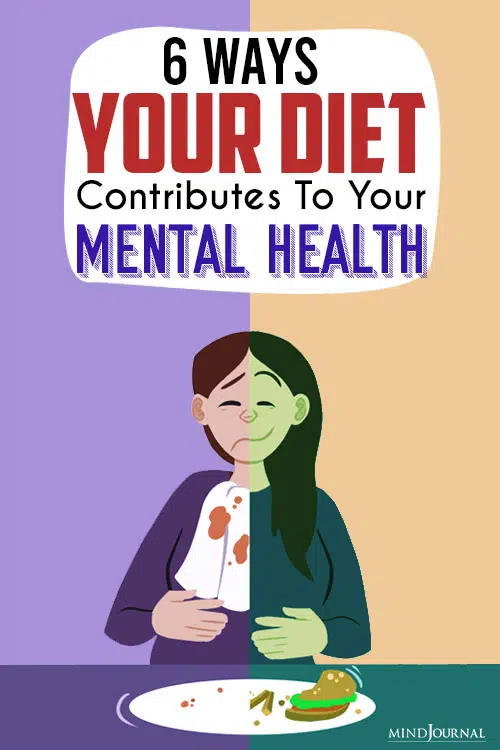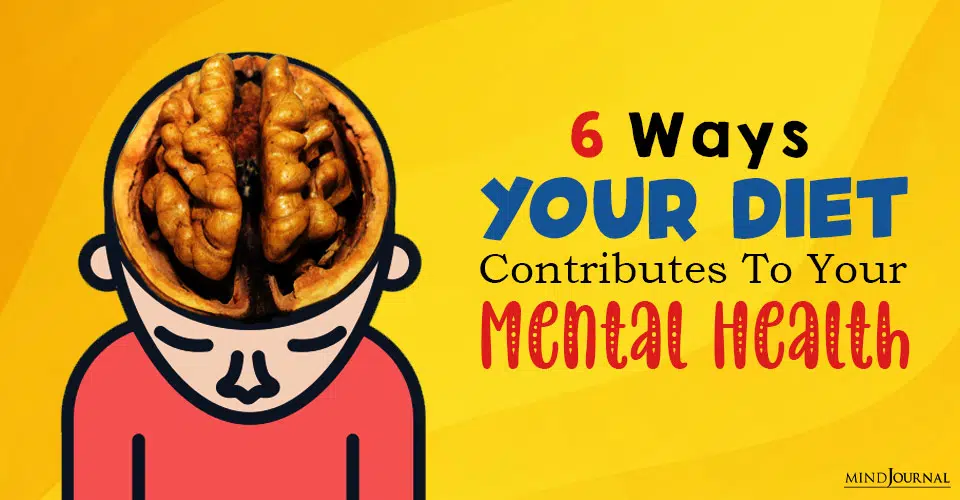What are you having for dinner? We know that what we eat affects our bodies. But did you know your diet can also affect your mind? Studies are discovering that a healthy and nutritious diet is not only good for your body, but it can also help to improve your mental health.
“To eat is a necessity, but to eat intelligently is an art.” – Francois de la Rochefoucauld
You’ve probably heard the saying “you are what you eat” applied to physical health, but could the same phrase be true when it comes to your mental wellbeing? According to science, the answer is yes.
Recent studies show that one’s diet can drastically affect several factors pertaining to your mental health. Here are a few ways your diet contributes to your mental health.
6 Ways Your Diet Contributes To Your Mental Health
1. A Healthy Diet is Essential for Brain Development
“Nutrition is the only remedy that can bring full recovery and can be used with any treatment. Remember, food is our best medicine!” – Bernard Jensen
Maintaining a healthy diet throughout your life is vital for brain development. Eating quality food allows the body to create the necessary building blocks for a healthy brain. Without those building blocks, mental development will likely be stunted.
Related: 9 Basic Foods That Treat Depression Better Than Medication
2. Nutrients Encourage the Brain to Grow
Consistently consuming omega-3s and zinc, essential nutrients in a healthy diet, helps create connections between brain cells. These nutrients allow the brain to improve resilience and cognition.
Conversely, if you pursue a diet with excess refined sugars, it can have a negative effect on essential brain proteins. This hinders your brain’s ability to create connections and improve brain function.
3. Food Influences Your Mood
They say the way to someone’s heart is through their stomach, but it is actually the way to their brain.
The brain and the gastrointestinal tract have a close relationship. Essentially, your GI tract is continually sending messages to your mind using neurotransmitters. There are billions of bacteria in your GI tract that influence these neurotransmitters.
If you fill your body with healthy food, then you create “good” bacteria in your GI tract that subsequently sends positive messages to the brain.
However, if you consume unhealthy food, like sugar, it creates “bad” bacteria. This may make you feel good for a moment, but down the line, it will cause a crash that will likely have you feeling fatigued and unhappy.
4. Food Impacts Anxiety and Depression
“Mental health needs a great deal of attention. It’s the final taboo and it needs to be faced and dealt with.” – Adam Ant
Dr. Ramsey, an assistant clinical professor of psychiatry at Columbia University, argues that a poor diet is a significant part of depression, which the World Health Organization reports is one of the biggest causes of disability in Americans.
Research has backed up this statement. In fact, studies show that people who maintain a proper diet feel happier and more satisfied with life. Research has also shown that adapting to a Mediterranean or DASH diet can drastically help those who suffer from anxiety or depression. Some cases have even shown individuals who try these diets no longer need to take antidepressants.
Related: The Baffling Connection Between Vegetarianism and Depression
5. Guilt and Eating
“Tell me what you eat, and I will tell you who you are.” – Jean Anthelme Brillat-Savarin
Many people have eating problems, which is different than an eating disorder. An eating disorder is a medical illness whereas an eating problem is when you have a difficult relationship with the food you consume.
Feelings of guilt are just one sign of an eating problem. A continued eating problem can cause feelings of depression, anxiety, shame, and other negative feelings. By pursuing a healthy diet and letting go of guilt when you indulge in moderation will lead to more successful mental health.
6. Appearance, Self-Esteem, and The Mind
“The food you eat can be either the safest and most powerful form of medicine or the slowest form of poison.” – Ann Wigmore
Today, how you look plays a significant role in your mental health. Body image and self-esteem directly influence your feelings, thoughts, and behaviors. If you have an unhealthy diet that causes you to unsatisfied with your appearance then your mental health may diminish.
By creating a healthy diet, you can not only look better but feel better too, increasing your overall mental health.
How To Improve Your Diet
“The healthy man is the thin man. But you don’t need to go hungry for it; remove the flours, starches, and sugars; that’s all.” – Samael Aun Weor
Creating a healthy diet may be hard at first, but the rewards are extremely beneficial for your physical and mental health.
You can begin by incorporating healthy foods and products into your daily life. If you are still having trouble maintaining a healthy diet, talk to your primary physician about seeing a nutritionist or taking nutritional supplements such as vitamin D and B12.
Some health insurance plans may even cover vitamins and other over-the-counter supplements. It would be wise to consult a doctor, nutritionist, or nutritional physiologist to determine which options are best for you.
“Diet is the essential key to all successful healing.” – Joseph Raynauld Raymond
Related: 7 Ways To Stop Emotional Eating And Be Mindful Of Your Diet
A nutritious diet can not only help you fight depression and other mental disorders, but it can also boost your mood, make you feel positive emotions, and a lot happier in life. Studies have found that a balanced, healthy diet can make us feel more energetic, creative, and motivated. It helps us become more purposeful and engaged in life.
It’s not necessary that you go for a keto or paleo diet. As long as you practice healthy eating habits and are mindful of what you consume, you will experience better mental health and well-being. Start by eating healthy for a few days and see how it makes you feel physically, emotionally, and psychologically. Once you have experienced the benefits first hand, you can follow a more strict diet plan and give your mental health the boost it deserves.
Go ahead and give it a try.
Written by Christian Worstell Originally appeared on Berkeley Well-Being Institute











Leave a Reply
You must be logged in to post a comment.